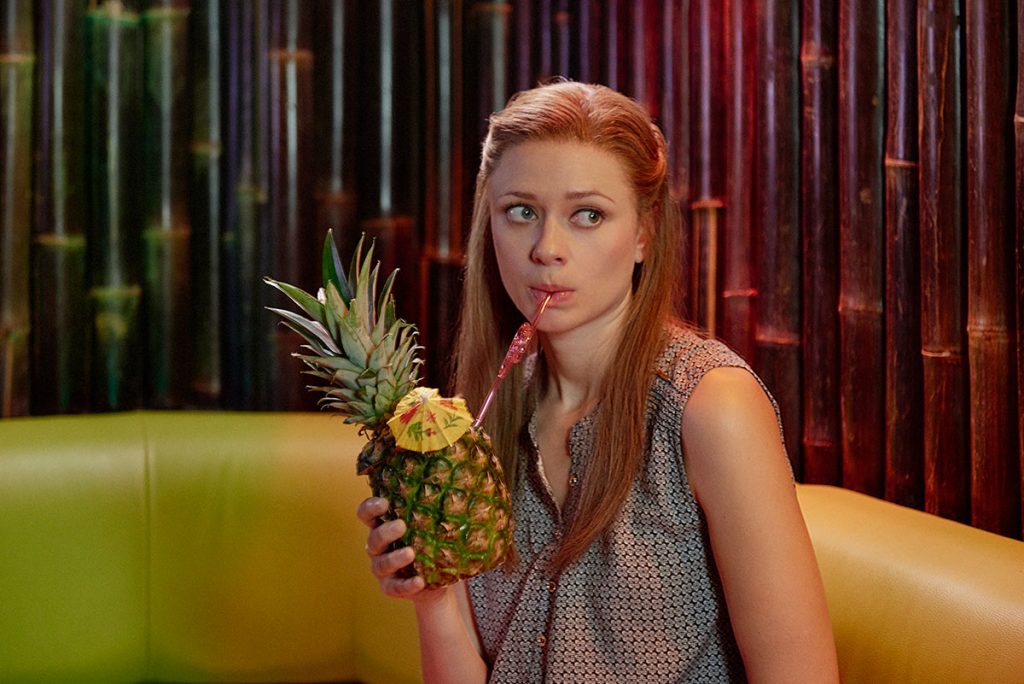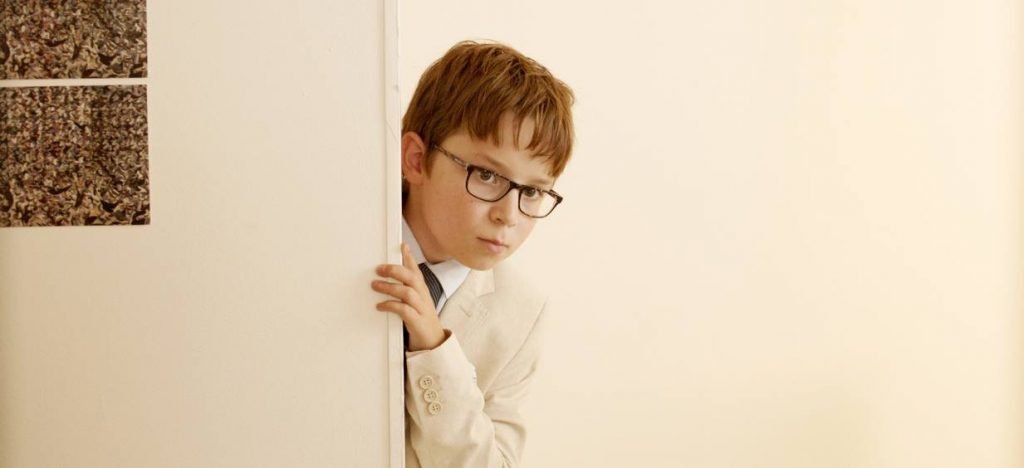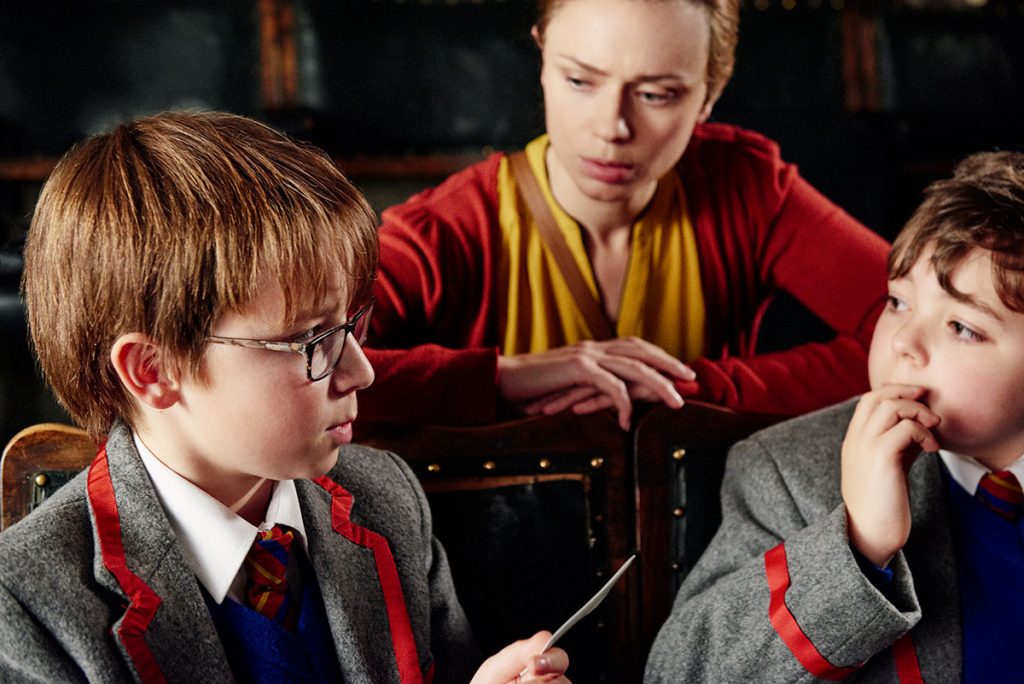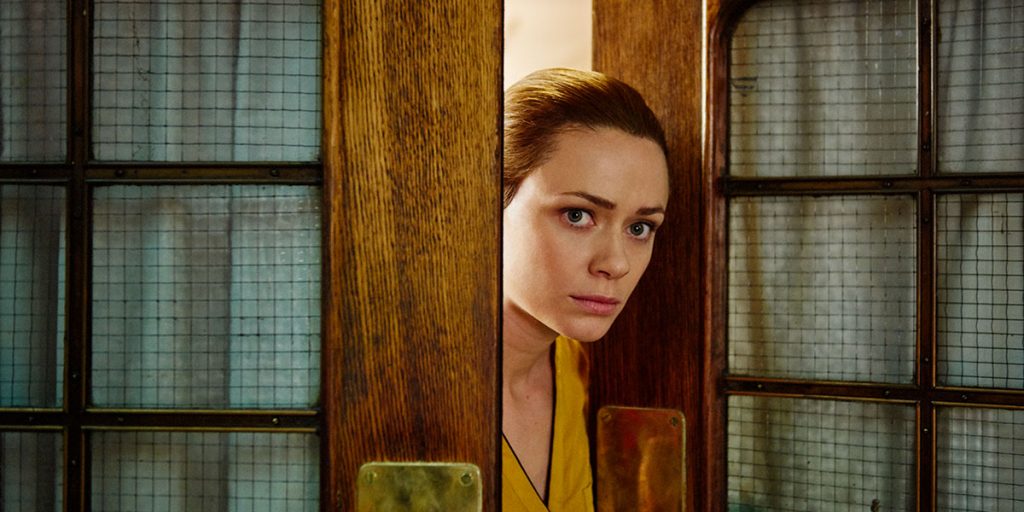We interview Sasha Collington on her hilarious, infectiously enjoyable debut feature Love Type D, a film about a woman who discovers that her DNA is to blame for her bad luck in love.
If Love Type D‘s leading character has been dumped twelve times in a row, it’s certainly not due to bad luck. Genetics is to blame for Frankie’s (Maeve Dermody) predicament, as a ‘loser in love gene’ in her system makes it impossible for her to have a successful, long-lasting relationship. But the protagonist of Sasha Collington’s wildly entertaining rom-com is determined not to let her DNA come in the way of her love life: with the help of a eleven-year-old schoolboy/science genius (who also happens to be her ex boyfriend’s little brother), she embarks on a quest to change her destiny and reverse her situation.
Ironic, clever, thought-provoking and superbly written, Love Type D manages to do what many romantic comedies only aspire to achieve. In a seemingly effortless way, Sasha Collington’s impressive debut feature draws you in with an interesting premise, makes you fall in love with its relatable protagonist and keeps you entertained with a series of unbelievably funny moments involving the many characters Frankie happens to meet on her unusual journey.
We interview director Sasha Collington at the Edinburgh Film Festival, where Love Type D premiered on 21st June, and ask her about the themes behind her movie, the casting and filming process and her future projects. Here’s what she told us on science, love and much more.
LOVE TYPE D: RELATIONSHIPS AND GENETICS

What I loved the most about Love Type D is that you chose to associate bad luck in love with genetics! How on earth did you think of that?
SC: I suppose it draws on a familiar feeling: everybody has been dumped in their life, and everybody has felt at some point that maybe they’re uniquely doomed in a way that other people aren’t. It also evolved from a love of science: even though I wasn’t very good at science in school, I’m quite interested in it. I do read about scientific developments, and I’m very interested in the whole nature/nurture debate. Is your character formed by your genes or is your character formed by experiences within your lifetime?
I don’t know how exactly I thought of it, but once it came into my head I was very curious by the idea that what you may attribute to bad luck is actually a condition that you didn’t know you had – that is, a gene that predisposes you to fail in love.
It’s also interesting on a psychological level: if you know you’re not to blame for your romantic failures, perhaps it might be easier to try and deal with them?
SC: I was wondering about that. Would it be reassuring to know that there’s nothing you could have done and it wasn’t anything you said or did? On the other hand, if you have the gene, it also means that, no matter what you say or do, the outcome is still the same.
Nowadays, you can get genetic testing to see what your predisposition is to certain diseases, and that made me think – is it better to know or to not know? If a relationship is doomed to fail, would you want to know from the beginning?
LUNCH DATE AND THE ORIGINS OF WILBUR

Part of what we see in the movie also comes from a short film you made in 2001, Lunch Date, and it seems to me that one of the characters of Love Type D, Wilbur (Rory Stroud), originated from there.
SC: It’s really nice to hear that people are really responding to Wilbur! When we did a test screening, we asked the question – “Who’s your favourite character?”, and the answers on the questionnaires were just “Wilbur”, “Wilbur”, “Wilbur”! [laughs] That’s when I realised: oh, wow! People seem to really like Wilbur, which is so nice!
As you said, the character came from a short film, where he is sent to dump his brother’s girlfriend, who’s an adult, and he’s a child. I think the character in Love Type D really was inspired by the actor that played that part in the short: I had met him previously, and he came for an audition for another film I was casting. He was a very serious little boy: very intelligent, but incredibly serious!
I quite liked this idea of this eleven year old boy who reads a lot, and therefore knows a lot about history – like, the Mongol invasion and the Genghis Khan, and he uses this knowledge of history to comment on your love life. He obviously doesn’t know anything about love: he’s never had a relationship, he’s never kissed a girl… He has that innocence that, in a way, enables him to be wise, but there’s also the aspect that he doesn’t understand about emotions, and I like that idea.
LOVE TYPE D‘S PROTAGONIST: MAEVE DERMODY’S FRANKIE
How did you cast Frankie, your leading character?
SC: It was quite difficult to find the main character, because you have to believe that she has been dumped twelve times in a row. She has to be sympathetic enough that you want to go on a journey with her, but she also has to be funny and, most of all, believable. If someone played her just for laughs, it would cease to feel real, but Maeve [Dermody] has a really good balance of deadpan comedy and credibility.
We auditioned loads of people, we couldn’t find the right person and I was so adamant: I didn’t want to cast someone I wouldn’t totally believe in. I had seen Maeve in Griff the Invisible, an Australian independent comedy that premiered at Berlin a few years ago, and I remembered her because she was very funny, but also very deadpan. I e-mail her agent in Australia, in the middle of the night, to say – “Hey, I’ve got this independent film, we’re shooting in three weeks and I would really like Maeve to read the script”. She flew over to do it and I was a little anxious, but we did the first take and I felt so great! She was so perfect.
LOVE TYPE D: FROM SCREENPLAY TO FILM

It’s really hard to tackle irony and do it well, and you’ve done a tremendous job on the screenplay! I love that all your characters have specific traits. For example, everything that comes out of Thomas (Frankie’s ex boyfriend, played by Oliver Farnworth)’s mouth is a cliché, which is hilarious, and even characters who play a smaller part are a great source of comic relief.
Was it all in the script or did it evolve during filming?
SC: Things definitely evolved as they went along. The dialogue is generally quite close to the script, though we do have some really funny actors so there are some really good lines that are improv. There’s a line by the office boss [Marianne, played by Sophie Fletcher] about the fact that her fiancé looks so perfect that plastic surgeons use his nose as a “perfect nose example”! That was her improv: it’s an incredible line, so we kept that in.
I find writing a very difficult thing to do, particularly with structure. It took ages to try to get the emotional arc right: if you don’t feel that there’s a journey, it’s actually not funny. Even if the scenes themselves as stand-alones are funny, if they don’t inform some sort of journey it ceases to be funny, so it’s really difficult to get that right.
I added the voiceover in the edit, and we also added some extra scenes, which I wrote as I felt that trying to hit those beats of her journey and her realisation added to the film. It was an exercise in screenwriting: within the edit, I really wanted to fix the things that I hadn’t fixed in the original script. Structure is a nemesis of mine: it’s hard! [laughs]
How long did it take you to finish it?
SC: The film took five years! It just seems so long, and sometimes you think – “What a waste of time!” [laughs] But, especially with independent films, I think you can either have time or money. If you’re a smaller film and you don’t have money, then you need time.
It’s even the little things, like when we added graphics elements within the film, such as websites or Facebook pages… Well, it’s not actually Facebook: we had to create our own social media account! It’s all very time consuming, but at the same time I feel like it adds something. We tried to include visual jokes, and little things, like, with Thomas’s ex [Cecilia, played by Alexandra Evans] being an astronaut, we photographed her in a space suit… It’s little things like that. It’s taken a while! [laughs]
The music was so appropriate too!
SC: We had an amazing composer, Richard Canavan: he did a fantastic score. I knew I wanted an orchestral score, which isn’t always possible in an independent film. Rich wrote it and we had it recorded by the Macedonian Orchestra, who recorded it via an audio link. It was pretty wonderful to hear it.
What message do you want people to get from your film?
SC: Love Type D draws on people’s fears: they fear there might be something wrong with them that isn’t wrong with other people. The film is really about reminding you that you’re master of your own destiny. The romantic comedy genre is evolving, and romantic comedies don’t necessarily need to end with a relationship being the answer to your problem. The film reminds people that they can’t really change anyone else’s behaviour, but they can change their own.
THE FUTURE FOR SASHA COLLINGTON

What’s next for Love Type D?
SC: This was our premiere: we finished the film two days before the screening! Now we’ll go on to attend some more film festivals: what’s always funny with comedy is to see how it travels. I’m always really interested to see how people from different countries respond to it and how the comedy translates. The themes are somewhat universal, so it would be nice for it to have a wider audience.
What’s next for you? If Love Type D kept you busy for five years, I can imagine you might like a break!
SC: After I’ve had a holiday [laughs], I really want to develop some episodic ideas that also have science and comedy in them. I did manage to pack a lot of ideas in Love Type D, but I’m quite excited about the idea of being able to follow each strand.
Love Type D had its World Premiere at the Edinburgh Film Festival on 21st June, 2019.

